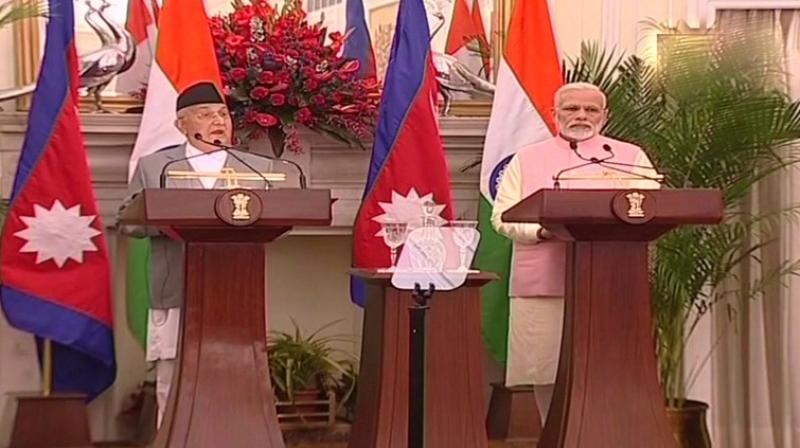New dynamic enters ties with Kathmandu

Nepal Prime Minister K.P. Sharma Oli’s visit to New Delhi on Friday-Saturday, his first after assuming office for the second time in February, appears to have introduced a new dynamic into the relationship between the two countries, with the Nepal leader being in a position of far greater reassurance than earlier, and perhaps greater than any other previous PM. He has signed up on China’s Belt and Road Initiative. New Delhi was in no position to influence Kathmandu in this matter. With China, the Oli government has reached an agreement for a trans-border rail network through Tibet. China will also prospect for oil in Nepal. The value of these is obvious, especially for a China-leaning leader.
In addition to this, the new element for Mr Oli is a buoying one in domestic politics. His Communist Party of Nepal (United Marxist-Leninist) has agreed to unite with Mr Prachanda’s CPN (Maoist) to form the CPN, and he is the first PM of this united Communist bloc. The Nepali Congress, the bourgeois bloc, was the largest single party if the Communists were not one party. The Nepali Congress took a bad beating in February’s elections. Mr Oli is thus in a position to have the best of both worlds regarding Nepal’s ties with Beijing and New Delhi. It was a recognition of this reality that made Prime Minister Narendra Modi tell the Nepal PM that India’s bilateral assistance would be directed by the priorities set by Kathmandu.
Mr Oli also made a meaningful observation — that he would aim to build “an edifice of trust” with India in keeping with 21st century realities. That probably says it all. In light of the changing scenario, it’s quite pointless for India to make too much of the fact that it was Mr Oli’s first port of call on his second coming as PM. The Nepal leader said before reaching New Delhi that his country has “two neighbours”. In fact, India should have long learnt not to expect any special relationship with Kathmandu, but build normal friendly ties with stakes in Nepal’s stability. Only that can ensure that Kathmandu will not permit itself to be used by others to prejudice India’s security interests across the open India-Nepal border.
During the Oli visit, the two nations agreed on a trans-border rail link between Raxaul (Bihar) on the Indian side and Kathmandu. This is an important connectivity factor that will help the transit of goods and people. India also agreed to build an inland waterway link to the sea for Nepal, which drew Mr Oli’s praise. The agreement on Indian support to Nepal in agriculture is also deemed important. These are good agreements, but there must be a meeting of minds politically for anything to take the desired shape.

